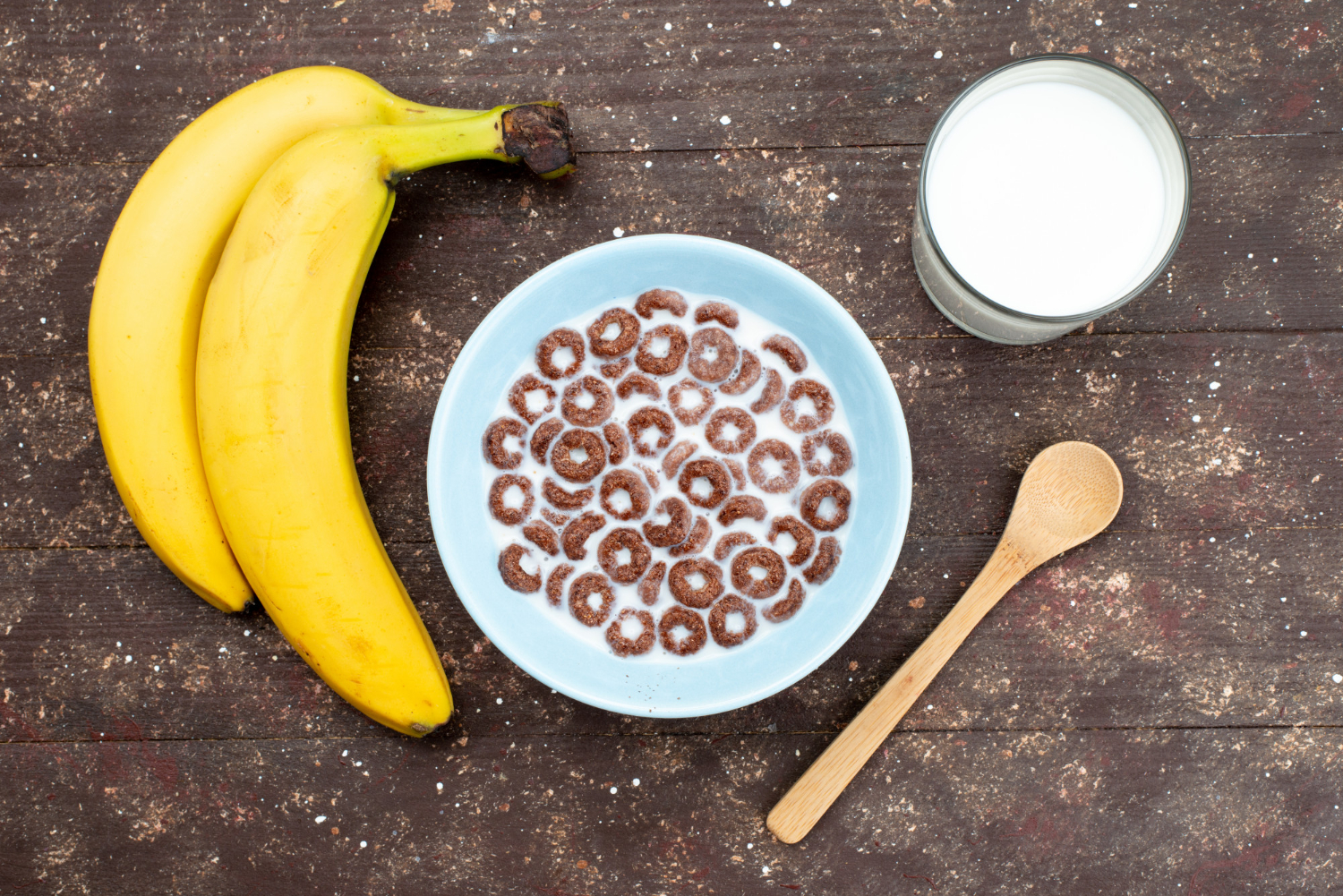Consuming bananas and milk is a staple food combination. This fruit and dairy are commonly mixed in smoothies and shakes and combined with other nuts, seeds, and fruit mixes. While consuming bananas and milk is beneficial to one’s body, combining these two may deplete the potential nutrients in the body initially available from the two unique fruits.
In terms of the Ayurveda diet, mixing bananas and milk provides an imbalance in your overall metabolism and digestion process. According to this Hindu practice of well-being, bananas and milk can diminish the stomach’s Agni (fire). The imbalance of one’s Agni can contribute to your tightening or expanding your stomach, which can later turn into belching and vomiting.
You practice an Ayurvedic diet or the proper eating of food to regulate your body’s natural energy. This also encourages good weight management, which may affect other aspects of your health. If consumed without moderation, banana and milk can disrupt your digestive tract, which can cause discomfort to your stomach. Improper inclusion of banana-milk mixture in your diet may also contribute to your weight gain.
Why We Should Not Eat Banana with Milk?
Bananas and milk are famous diet combinations for people who want a suitable supply of protein, carbohydrates, sugars, and other nutrients. This duo is commonly available in the form of chilled milkshakes. Ideally, eating milk and bananas is not a bad thing. As mentioned earlier, these two food items contain their own set of macro and micronutrients that revitalize our bodies and minds.
While banana milkshakes are a perfect combination, you may consider eating them separately. Milk and bananas should not be consumed together, for they can deplete the supposed-to-be benefits of these foods to your body. Dietitians recommend drinking milk first and wait for thirty minutes. After your digestive tract has already processed the milk, you can slowly chew in the bananas inside your mouth.
Mixing milk and bananas produces an unwanted mixture to your stomach, disrupting your body’s digestion process. You may feel heavy and bloated while you are sleeping, which can also affect your sleeping pattern. Changes in the sleeping pattern are harmful and can produce other side effects like weight gain, emotional turmoil, and stress.
Bananas are also not a recommended food for people that have asthma-related allergies. This fruit contains enzymes that create mucus on the esophageal tract. Mucus will block the air pipes on your chest area, which will make breather harder. The practice of Ayurveda, a Hindu medicine that focuses on the well-being of the body’s energy cores, suggested that excessive eating of bananas and milk will reduce your body’s Agni.
Will They Harm Your Body If Eat Together?
Further analysis through Ayurveda medicine shows that eating bananas and milk can be toxic to one’s body. While it is non-poisonous, it is enough to trigger nasal-related conditions like allergies, colds, cough, and sinusitis.
In Ayurveda knowledge, it is essential to know what kind of food you are consuming. Each food items have its rasa (taste), vipaka (effect on one’s digestion), and virya (body’s heating and cooling energies). In the case of bananas and milk, it is placed on the food with the most incompatibility.
When taken with an empty stomach, the acid content found in bananas and milk will disrupt the body’s vipaka and virya. Milk both have a cooling vipaka. The different polarities of its energy can release a nasty mix of rasa, described as a mixture of sweet and sour. The taste constitutes the stomach acid released by this incompatible mix.
Specialist of Ayurveda medicine describes this bad combination called Viruddh Aahar, which translates as “incompatible combinations.” This produces a toxic substance called Ama, which is the leading cause of the body’s energy imbalance. Ama can kill the body’s Agni, which can disrupt the intestinal structure of a person.
Milk and banana create a negative block on one’s body. Blocks of water are produced on the stomach area, giving a heavy sensation to one’s belly area. If continued daily, it can create gastrointestinal complications such as acid reflux, indigestion, vomiting, and diarrhea.
Other studies reveal that mixing bananas and milk can disturb your overall digestion. If the proper introduction of these food mixes is not created, it can contribute to your increased weight gain through a period. A piece of a medium-sized banana can give you 105 calories, while a single cup of whole fresh milk can provide 149 calories. Specific milkshake recipes can already create a calorie count of 300 calories per serving.
If eaten in considerable amounts, the calories may add up enormously—which can result in the stack of unused sugars and carbohydrates to your body. This produces a reaction to your tummy, where it transforms new materials in the form of belly fat. Weight gain can cause moderate to severe complications like high blood, cholesterol, obesity, diabetes, and heart attack.
What Should Not Be Eaten with Milk?
Aside from bananas, there are many fruits and food combinations that shouldn’t be mixed with milk. According to Ayurveda practice, several foods mixed with milk will disrupt the body’s digestive fire and produce mucus around the nasal tract, which can hinder proper breathing. Milk should be eaten on its own or mixed with a few servings of jaggery, honey, or sugar.
Other food products can be eaten with milk but with proper separation. Milk must be consumed first and digested for 20 minutes or more before eating different foods. Food items mixed with dairy products are doable since they are only incorporated in small quantities. After drinking your daily dose of milk, you may eat the following food items after 20 minutes:
- Cherries
- Citrus fruits
- Yeast-containing food
- Yogurt
- Beans
- Eggs
- Meat
- Fish
- Radish

